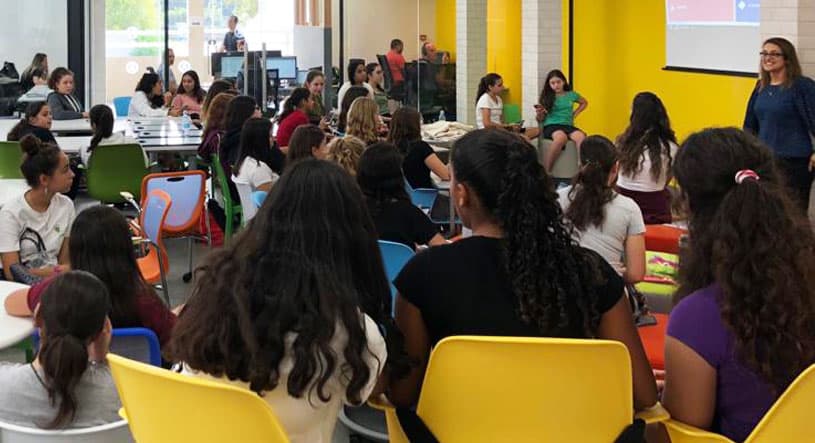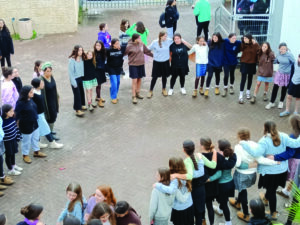 By Amnon Eldar, director general of the AMIT network
By Amnon Eldar, director general of the AMIT network
The process of transforming our schools and classrooms into “learning communities” calls for the same skills we seek to impart to our students, so they will thrive in the 21st century: teamwork, research, analytical skills, curiosity, critical thinking and creativity. This process isn’t just about breaking down walls and changing the physical space of the classroom so that it will look more modern or vibrant; it is about the ongoing alliance between AMIT administrators, R&D teams, principals, teachers and students that yields an exciting new dynamic in our schools—and ultimately benefits our children.
Over the last year, 35 new Gogya spaces opened at AMIT schools across the country, bringing the number of schools in the network that use our unique learning model to 76. You might be picturing those classrooms, with their glass walls and colorful modular furniture, and thinking those numbers sound impressive. What they don’t convey, however, is the extraordinary effort required to introduce this forward-thinking cultural shift into our AMIT schools—and to enable it to succeed.
In these state-of-the-art classrooms, teachers spend less time lecturing at the front of the class and more time guiding their students using new pedagogical methods that are better suited to the 21st century: leading roundtable discussions, helping children learn independently or in small groups, integrating computers and technology with active and experiential learning in open spaces or maker’s spaces. At Yeshivat AMIT Nachshon, for instance, the students chart their own path for development and progress and study independently toward their goals. The school serves as more of a supportive platform that bolsters and enriches their personal growth.
At AMIT’s Gogya teacher-training center in Ra’anana, we recently inaugurated an entrepreneurship and innovation incubator—an open space that enables our students to have unmediated contact with mentors from the high-tech industry who work on site. This space serves as a hub for technological innovation and our students come from all over Israel to learn about different subjects that are relevant to them to day and will remain relevant in the future.
I recently visited four of our AMIT schools in Beersheva. Each of them has a Gogya space, such as the ones you can see in the video below, yet each one is at a different stage of implementing our innovative new learning model.
I’m pleased to report that, despite their varying degrees of progress, there was a palpable sense of enthusiasm at each school about the changes taking place, not least among the teachers and principals. They, after all, are the conduits for these radical changes that are reshaping our children’s education.
The teachers I spoke with are excited because they feel a renewed spark—they invest more time in preparing for their classes and in learning about the subjects they teach. Why? Because they feel a sense of partnership with their students—who have become more active and engaged—and want to remain relevant to their education. They feel that they are part of their own learning communities as well, one that shares information on how to convey knowledge and information, and one that has the backing, guidance and support of everyone at AMIT. They receive personalized attention and encouragement from the network that they then pass on to their students.
That renewed spark is the essence of Gogya. It is a cultural shift taking place in our schools and in the minds of those who work and study there. It doesn’t happen overnight—it is a painstaking, detailed, collaborative process—but in this case, the journey is as important as the destination.





